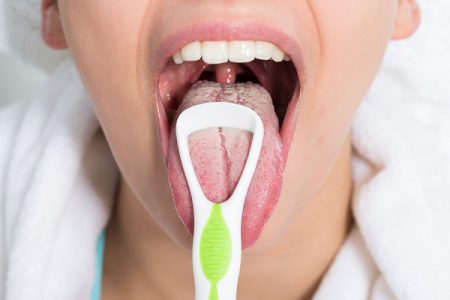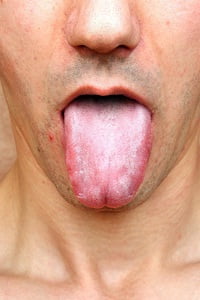Sudden Dry Mouth Anxiety: Is There a Link Between Stress and Dry Mouth (Xerostomia)?
- Updated on: Jun 11, 2024
- 2 min Read
- Published on Apr 19, 2021

Stress, Anxiety and Dry Mouth (Xerostomia)
Dry mouth or xerostomia is a condition in which your salivary glands don’t make enough saliva. Consequently mouth becomes dry. Saliva helps prevent tooth decay, slows bacterial growth and, cleans away food particles. Saliva helps in many other ways.

Stress makes you uncomfortable in many ways. Dry mouth is one of them. You might experience it when you are uncomfortable due to anxiety or going through an irritating time. Anxiety and dry mouth can be harmful. You should contact your dentist if you suffer from them often.
Can anxiety cause dry mouth?
When you are anxious or stressed, the follow of saliva can get reduced in your mouth in some people. In some other people, the very fact of being anxious does not cause dry mouth, rather, it is the medicines such as antidepressant that cause dry mouth.
Dry mouth is a known side effect of various types of medicines such as antidepressants, anti-psychotics, antihistamines, beta-blockers and muscle relaxants, and many other drugs. You can get dry mouth as a side effect of the treatment for Parkinson’s disease and epilepsy and some other health conditions also. When an anxiety medication is the cause of your dry mouth, the symptoms usually appear after starting the course of treatment.
However, anxiety and its drugs aren’t the only causes of dry mouth. There are many more reasons why you can develop dry mouth. For example, breathing through the mouth, Sjogren’s Syndrome and dehydration can also cause dry mouth. Read about the causes of dry mouth.
How Anxiety Causes Dry Mouth and What to Do?
Some physical symptoms of anxiety can act as serious irritants. They may not be concerning about your overall health but sometimes the symptoms are quite annoying. Dry mouth is an example of this type of symptom. There are millions of people who suffer with anxiety and have to deal with dry mouth every day.
You should speak to your doctor if you notice dry mouth symptoms and remain stressed quite often. You can also take an anxiety symptoms test to check the score of your anxiety level.
There’s a lot you can do to reduce the symptoms. Good oral health habits are important. Brush your teeth at least twice each day with a fluoride toothpaste, and floss once a day. To keep your mouth moist and fresh, take regular sips of water and use artificial saliva and mouth rinses available in the market as per your doctor’s recommendation. Keep your teeth clean.
Anxiety and dry mouth are two conditions that often go together, but both are treatable if you use and avoid certain medications and follow certain basic guidelines. There is certainly no need to suffer the uncomfortable condition of dry mouth and let it affect your overall dental health.
Can anxiety cause dry mouth all of a sudden?
Yes. This is possible. This is mainly because the body reacts to acid reflux symptoms in moments of intense anxiety and stress. Acid can cause your salivary glands to produce less saliva which gives a feeling of dry mouth. These symptoms may all of a sudden cause a feeling of irritation and annoying. Speak to your doctor if you find it difficult to manage by following basic tips at home.












